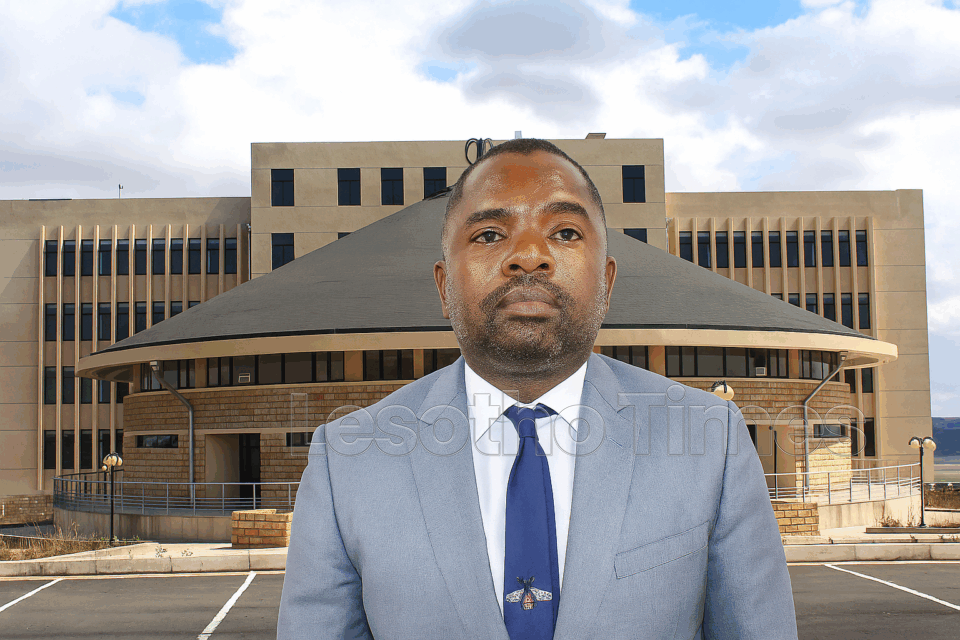Mohloai Mpesi
THE National Assembly has approved a proposal by the Democratic Congress (DC) MP for Mekaling constituency, Thabiso Lekitla, to proceed with the drafting of the Whistleblowers Bill, 2024.
Mr Lekitla filed a motion seeking permission to introduce a Private Members’ Bill under Standing Order No. 52 (1), titled Whistleblowers Bill, 2024: A Bill for an Act to Protect Whistleblowers.
Speaking in support of his motion this week, Mr Lekitla emphasized the crucial role whistleblowers play in promoting good governance as they expose corruption, abuse of power, and fraudulent activities, thereby shedding light on matters of national interest.
“Whistleblowers provide critical information that aids the Lesotho Mounted Police Service (LMPS), the Directorate on Corruption and Economic Offences (DCEO), the Financial Intelligence Unit, and the Public Accounts Committee (PAC) in fulfilling their mandates effectively,” Mr Lekitla said.
He highlighted gaps in existing legislation, including the Witness Protection Act, the Prevention of Corruption and Economic Offences Act of 1999, and the Official Secrets Act of 1967, saying these laws offer limited protection to whistleblowers.
“Current laws do not safeguard whistleblowers from retaliation. For instance, the Official Secrets Act criminalises disclosure of government information without authorisation, even if the disclosure serves the public interest.”
Mr Lekitla cited the case of Rex vs Masupha Sole, which involved corruption, fraud, and bribery within the Lesotho Highlands Development Authority (LHDA).
In that case international whistleblowers uncovered the malpractice at the time, but Basotho employees remained silent due to legal constraints.
He also referenced the 2018 case where Mohau Lebajoa and Percy Bereng were sued for leaking a government gazette concerning the appointment of the Acting Court of Appeal President, Yvonne Mokgoro. Despite exposing abuse of power, the whistleblowers faced legal action.
Highlighting risks faced by journalists, Mr Lekitla cited the 2014 arrest of former Lesotho Times and Sunday Express journalist, Lekhetho Ntsukunyane, over an article alleging high treason by top officials, and the recent apprehension of editor Mohalenyane Phakela by the DCEO over reporting on misconduct involving the Commissioner of Lesotho Correctional Services.
Proportional Representative (PR) legislator for Popular Front for Democracy (PFD), Lekhetho Rakuoane, reminded the House that the 10th Amendment to the Constitution already protects journalists from being questioned about their sources.
Speaker of the National Assembly, Tlohang Sekhamane, emphasized that the Whistleblower Bill will strengthen the protection already afforded to journalists.
“You are correct. This issue involving the journalist violates the Constitution outright. It does not only breach principles. This Whistleblower Bill will simply enhance the protection of journalists, who are already safeguarded by the Constitution,” Mr Sekhamane said.
Leader of the Basotho Action Party (BAP), Professor Nqosa Mahao, supported the motion, noting that many institutions, including the police, rely on whistleblowers for intelligence.
“Often, the police rely on whistleblowers and cannot reveal the identity of the person providing information. The fact that we have the Witness Protection Act does not preclude us from having this law. People who disclose sensitive information often get into trouble for revealing secrets they were not supposed to disclose.
“This hinders our ability to clean up governance in the country. Whistleblowers frequently face victimisation or retaliatory actions, regardless of whether the information they disclose is important,” he said.
Professor Mahao further highlighted that whistleblowers often face dismissal from work for revealing privileged information.
“This demonstrates a gap in our laws, and this Bill will close that gap and provide a fair balance. It will mark a significant achievement in the history of the 11th Parliament. Whistleblowers often encounter problems such as being fired from their jobs or being denied benefits like promotions. With this law, they can confidently raise complaints, knowing they are protected for providing crucial intelligence,” Prof Mahao said.
Democratic Congress (DC) legislator for Lithabaneng constituency, Rethabile Letlailana, also supported the motion.
“Corruption is a worm eating away at every country’s prosperity. This Bill aligns closely with United Nations recommendations that, to achieve development, corruption must be substantially reduced. Without a law protecting whistleblowers, we are not doing enough.”
He emphasised that media houses should be formally recognised in the law as legitimate recipients of whistleblower information.
“Media outlets under this law are protected, and whistleblowers can safely provide them with information. This prevents situations where journalists or editors get into trouble for receiving such disclosures. Editors and journalists must be protected as receivers of whistleblower information. National Assembly committees and legislators can also serve as legitimate channels for reporting.”
Leader of the Basotho National Party (BNP), Machesetsa Mofomobe, said fear of reprisals often deters people from revealing information.
“In the civil service, anyone who provides intelligence may face a transfer the next day. With this law, people will have the courage to speak up. For example, there were reports of individuals being injected with HIV-positive blood, yet the country remained silent. People who reveal information are frequently victimised. This law is meant to protect them,” Mr Mofomobe said.

